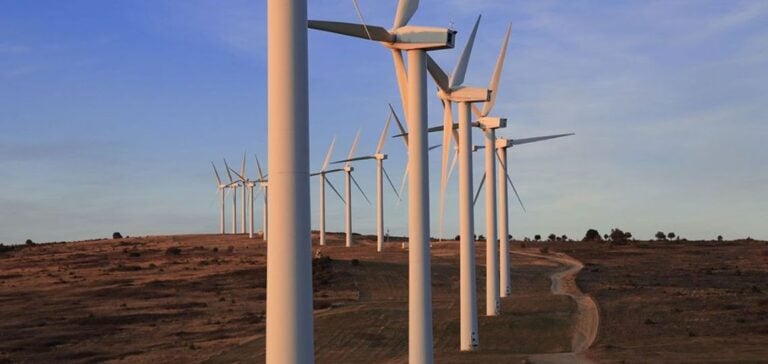The French infrastructure fund Meridiam has announced a partnership to develop a wind energy project in Egypt, representing an investment of over €1 billion. According to the company, this is the largest wind energy project in Africa. The project will be carried out in collaboration with the European Bank for Reconstruction and Development (EBRD), Hassan Allam Utilities (HAU), a key Egyptian energy sector player, and the Saudi group ACWA Power.
A Structuring Project for Egyptian Energy
The wind farm will be located on two sites in a desert area along the Gulf of Suez. Once completed, it is expected to produce a total capacity of 1,100 megawatts (MW), supporting the Egyptian government’s goal of increasing the share of renewables in its energy mix.
In 2023, renewable energy accounted for 11.5% of Egypt’s total electricity production. The country aims to reach 42% by 2030. This project aligns with that vision, with operations set to begin in 2027 and a projected operational lifespan of 25 years.
Partnerships and Funding
The financing relies on collaboration among several international and local entities. The EBRD provides financial and technical support, while ACWA Power and Hassan Allam Utilities contribute their respective expertise in energy infrastructure development.
These partnerships highlight the critical role of collaboration between international financial institutions and local companies in executing large-scale renewable energy projects.
The Context of Energy Development in Egypt
In December 2024, Egypt inaugurated a 500 MW solar power plant in Aswan, and in early January 2025, the French group Engie announced an extension of its wind farm in the Gulf of Suez region, bringing its total capacity to 650 MW. These initiatives aim to address recurrent electricity shortages, which are particularly frequent during summer months due to increased demand.
Ongoing energy projects aim to modernize Egypt’s electricity grid while reducing its reliance on fossil fuels.






















